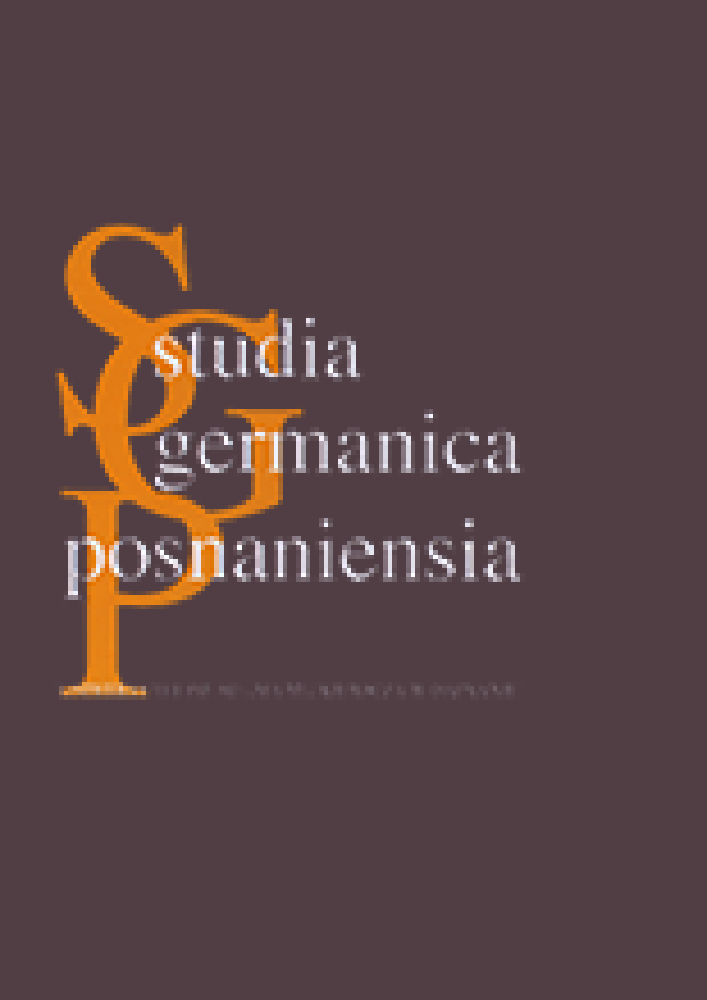Abstract
Present contribution focuses on the function of mythical and fantastic elements in connection with the role of time in the novel Brenntage of Czech-Austrian author Michael Stavarič. Beyond a special way of waste disposal, the title of the book refers to an iterative symbolic act in a village community which determines the relation to their past. This article examines Brenntage with regard to the linguistic presentation of parallel narrative worlds, which constitutes the polyphony of the text. Special attention will be given to the combination of cyclic and linear concepts of time that create the multi-layering of the text and which are going to be interpreted in the context of the transition to
adulthood. Subsequently, variant readings will be presented to show possible consequences of the
juxtaposition of cyclicity and linearity for the position of the first-person narrator.
References
Assmann, J. (1996). Denkformen des Endes in der altägyptischen Welt. In K. Stierle & R. Warning (Hrsg.), Das Ende. Figuren einer Denkform (S. 1-31). München: Wilhelm Fink.
Assmann, A. (2007). Geschichte im Gedächtnis. Von der individuellen Erfahrung zur öffentlichen Inszenierung. München: C.H. Beck.
Blumenberg, H. (1996). Arbeit am Mythos. Sonderausgabe, der 5. Aufl. folgend. Frankfurt a. M.: Suhrkamp. Cornejo, R. (2009). Lust am Spiel mit der (Fremd)Sprache. Ausgewählte Texte von Michael Stavarič, Pavel Kohout und Jan Faktor. Brünner Beiträge zur Germanistik und Nordistik, 14, H. 1-2, 105-122.
Gottwald, H. (2007). Spuren des Mythos in moderner deutschsprachiger Literatur. Theoretische Fallstudien und Modelle. Würzburg: Königshausen & Neumann.
Kremer, D. (1993). Romantische Metamorphosen. E.T.A. Hoffmanns Erzählungen. Stuttgart: Metzler.
Neuhaus, S. (2013). „Die Fremdheit ist ungeheuer”. Zur Rekonzeptualisierung historischen Erzählens in der Gegenwartsliteratur. In C. Gansel & E. Herrmann (Hrsg.), Entwicklungen in der deutschsprachigen Gegenwartsliteratur nach 1989 (S. 23-36). Göttingen: Vandenhoeck & Ruprecht.
Pfeiferová, D. (2012). Suche nach der (Mutter-)Sprache, als Versuch, den Untergang aufzuhalten: Michael Stavaričs Roman Brenntage. Aussiger Beiträge, 6, 193-204.
Ritz, Sz. (2015). Flucht-Linien eines Lebens. Annäherungen an Christoph Ransmayrs Geständnisse eines Touristen. In A. Bombitz (Hrsg.), Bis zum Ende der Welt. Ein Symposium zum Werk von Christoph Ransmayr (S. 223-230). Wien: Praesens.
Schilling, E. (2012). Von der Postmoderne zur „breiten Gegenwart“? In K. Birnstiel & E. Schilling (Hrsg.), Literatur und Theorie seit der Postmoderne. Mit einem Nachwort von Hans Ulrich Gumbrecht (S. 153-160). Stuttgart: S. Hirzel.
Schröder, C. (20. Juni 2011). Die Erinnerung brennt lichterloh. Die Zeit – Online. Abgerufen von https://www.zeit.de/kultur/literatur/2011-06/stavaric-brenntage.
Schwens-Harrant, B. (2014). Ankommen. Gespräche mit Dimitré Dinev, Anna Kim, Radek Knapp, Julya Rabinovich, Michael Stavarič. Wien, Graz, Klagenfurt: Styria Premium.
Stavarič, M. (2011). Brenntage. Roman. München: C.H. Beck.
Stavarič, M. (2016). Der Autor als Sprachwanderer. Salzburger Stefan Zweig Poetikvorlesung, Bd. 4. Wien: Sonderzahl.
